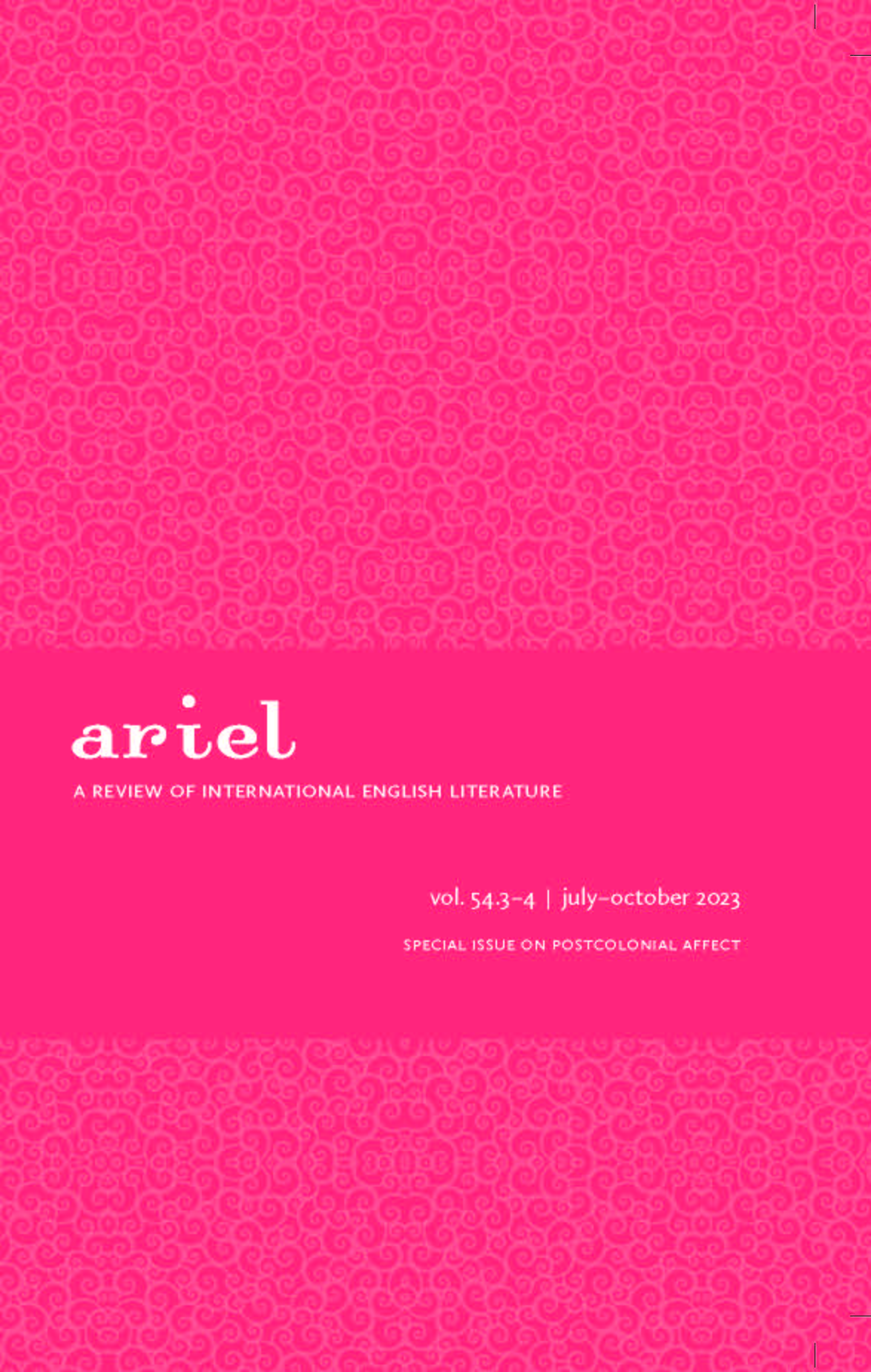Beyond Impasse: Affect and Language Community in Select Contemporary Afrikaans Lyric Poetry
Abstract
Early in Apart (2012), American poet Catherine Taylor’s formally hybrid meditation on the first visit she made as an adult to South Africa (the country of her birth), the poem’s narrating persona (Taylor; let us dispense with that critical-rhetorical vocabulary hereafter) recalls overhearing a disagreement about race and identity on the streets of Cape Town. A flower seller and customer argue about the promise of the new nation, and Taylor remarks uneasily: “They are at an impasse” (16). Taylor’s book-length meditation on trauma and inheritance asks what it means to attempt to recuperate a sense of identity linked to a place one cannot in conscience call entirely one’s own, but which is central to one’s family’s history.[i] Concomitantly, Apart ponders how a new communal identity might be forged in the aftermath of a period of collective trauma – in this case, apartheid (and the colonial era that preceded it). Unspoken in the encounter described above, however, is the question of language: in what tongue is the business of belonging in a new political – and temporal-affective – order to be worked through? For if English (the language of Taylor’s family, new life in the United States, and Apart) is also the lingua franca of the reconstituted nation state, it is only one of South Africa’s eleven official spoken and written languages, not including sign-language; according to the 2011 Census, English is only the fourth most widely spoken first language, well behind isiZulu, isiXhosa, and Afrikaans (Lehohla 23-25).[ii] Of these, Afrikaans was almost certainly the first language of Taylor’s flower seller, implicitly coded as Coloured.[iii] It was likely not the language of her customer, implicitly Black. Why does this matter, and why should such figures find themselves at an “impasse”?
[i] Taylor’s mother had been an anti-apartheid activist in the women’s Black Sash movement.
[ii] The figures were reported as 11,587,374 (isiZulu, 22.7% of the population), 8,154,258 (isiXhosa, 16%), 6,855,082 (Afrikaans, 13.5%), 4,892,623 (English, 9.6%, only marginally ahead of Sepedi’s 4,618,576, constituting 9.1%) (Lehohla 23-24). In only two of South Africa’s nine provinces did English have more first-language speakers than Afrikaans: Gauteng (including Johannesburg and Pretoria, where the difference was less than a percentage point); and KwaZulu-Natal (where the margin was 13.2 to 1.6%, both greatly outnumbered by isiZulu’s 77.8%) (Lehohla 25).
[iii] A complicated and contested term variously naming autochthonous peoples who do not identify as Black African, in addition to mixed-race people having indigenous, Black African, white, and/or south-east Asian ancestry. Note the South African English spelling to differentiate from the loaded term “Colored,” with its particular US history. While Coloured (capitalized) is a term often associated with apartheid classificatory logic (and law), coloured (lowercase) was during the middle and later 1990s used more frequently as a term of self- and communal identification. See Attridge and Attwell (xvii) for an example of how standard reference texts have engaged with the difficult legacies of the term for literary scholarship. The logic of denying the term an uppercase initial letter in the age of Black Lives Matter seems to this author to require revisiting, and it is capitalized throughout this essay, while subject to the caveat that it does not reflect a commitment to the use of terms of racial differentiation. It serves in the imperfect interim not to refuse to notice that racial, ethnic, and cultural variety exists, but to draw attention to the fact that a range of identifiable characteristics continues to affect life experience.


